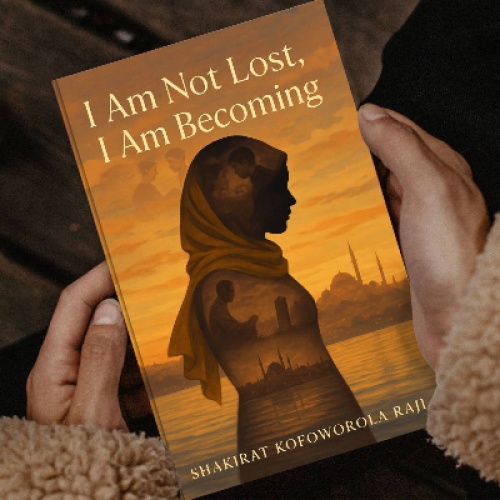The streets where your feet once hurried. The places where your voice once lingered. The corners where your laughter rose and cracked open the air. Cities hold on to those things long after you've gone.
And Lagos, God help me, remembers too much.
It is a restless city, always spilling over with noise, light, and grief disguised as survival.
Here, people walk fast because to pause is to feel.
And no one here wants to feel.
I used to be like them, good at pretending. Good at folding myself neatly into the roles expected of me: obedient daughter, respectable Arewa woman, accomplished journalist. But grief, I've learned, has no patience for obedience. It unravels you, thread by quiet thread, until one day you wake up and barely recognise the shape of your own reflection.
It has been nine months since Baba died.
Nine months since my mother's voice hardened like stone.
Nine months since I started sleeping with the lights on.
I don't cry. Not in the way people expect.
I have trained myself in the art of restraint. Tears, in my family, are a private affair buried beneath perfectly tied headscarves, polite smiles, and the steady recitation of Qur'anic verses meant to heal hearts, though mine still aches in the same stubborn places.
Now there is a man.
His name is Abba Gimba.
I do not love him.
He is the son of my mother's childhood friend. He works in banking, wears pale blue kaftans, and prays on time. His family is respected, clean, scandal-free.
He calls me "Zainabu" with the softness only northern men seem to manage, and my mother says, "Allah ya albarkace shi. May God bless him. You will learn to love him."
But love, I think, is not something you learn.
It's something that finds you or it doesn't.
In my dresser drawer lies a one-way ticket to Istanbul. Booked on a night when my bones felt too tired to belong anywhere else. A journalism fellowship I applied for months ago, back when I was still pretending to be brave.
Istanbul; with its faded mosques and sky that stretches wide like forgiveness.
I have never been there.
But sometimes, in the softest corners of my mind, I imagine it waiting for me.
Yusuf is there.
Yusuf Kareem.
The boy who once taught me how to ride a bicycle in the narrow backstreets of Zaria.
The boy who left without goodbye.
We were seventeen the last time I saw him.
Seventeen and full of quiet, impossible things.
People like Yusuf don't stay.
People like me aren't allowed to leave.
And yet here I am in this apartment with its cracked windows and humming refrigerator, sitting at a dining table littered with my mother's wedding invitations and the letter from Istanbul that arrived three weeks ago.
I have read it four times.
"Dear Ms. Zainab Usman,
We are pleased to offer you?"
I know the rest by heart.
The offer expires in ten days.
My wedding is in two months.
Grief is a cruel thing.
It teaches you to live like you're already halfway dead.
But maybe Istanbul is not a city.
Maybe it's a chance.
Maybe it's the one place where a woman like me, daughter of Zaria, stranger to Lagos, unclaimed by her mother, unfinished by her father's death can learn how to belong to herself.
The call to prayer rises outside my window now, soft and steady, and for the first time in months, it doesn't feel like a burden. It feels like a beginning.
I am not brave yet.
But one day, I will be.
And when that day comes
I will leave.








